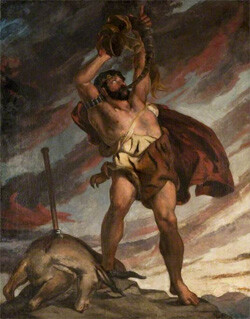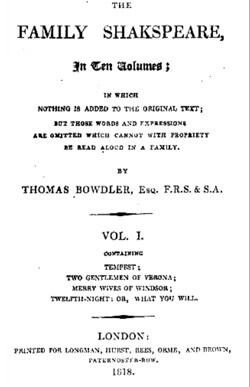6 People Who Failed So Hard Their Names Became Insults

Speaking practically, there are scales of how OK it is to do something wrong. Tripping while you're going up a staircase will be different levels of consequences if you're just walking up from your own basement, if you're carrying a full wedding cake, or if you're Jennifer Lawrence at the Oscars. Either way, however badly you do in life, chances are you'll do better than these people, who were so infamous their names went down in history as sick burns.
The Legendary Philosopher Who Became The Original Dunce
In late 13th-century Europe, there were only really two choices for people who were interested in the rising field of philosophy: John Duns Scotus and Thomas Aquinas. These two Catholic priests were both writers and theologians, with deeply technical disagreements on things like the nature of free will, and whether God was everything or everything was God -- because there's a big difference.
Don't Miss
To get back to hard facts, each of these guys had hundreds of students and thousands more devoted readers and followers hanging on to their every word. The whole situation was kind of like Marvel and DC, but a little more Marvel-At-The-Works-Of-God and Dominio Christi.

In terms of actual popularity, Coke and Pepsi is a better comparison, since Aquinas' writing was always more grounded and easier to actually read than Duns Scotus' more complicated, theoretical and downright mystical stuff. And when you actually write it out, it's easy to see why Duns Scotus' teachings got so unpopular over time that a "dunsman" or just a "dunce" became a word for a stupid person.
Nimrod, Who Went From Biblical Badass To Cartoon Idiot
Nimrod is a figure from the Bible, who was both a politically powerful king and "a mighty hunter before God". It makes for a pretty impressive combination -- you'd figure it would be hard to alternate between governing a country and riding through it in search of prey -- but he managed somehow.

Over thousands of years, Nimrod became the center of too many legends and traditions to list here, so many they kind of step on each other's toes: Some versions of the Tower of Babel story say he was the guy who drew up the plans himself, other versions say he was disgusted with the idea and bounced from his kingdom when they started construction, probably to go off hunting something.
Calling a hunter "a Nimrod" was a poetic flourish for a while, like calling a rich guy a Scrooge, but now it's like calling someone "Einstein" or "Sherlock". A "nimrod" now means a complete idiot, an utter buffoon, which is a way bigger swing than you usually get with linguistic drift. How did such an improbable change occur? You can thank Bugs Bunny -- a chaotic figure, but usually more the "making people blow themselves up with cartoon bombs" kind of chaos than the "changing the meaning of a word" kind.
In this case, one led to the other, when one of the rabbit's earliest cartoons in 1940 has him calling Elmer Fudd a "poor little Nimrod." Most people watching didn't get the sarcastic Biblical allusion to how shitty of a hunter Fudd is, and thought he was just using some weird cartoon word for an idiot.

Warner Bros.
Eventually, Bugs Bunny got so big -- in the cultural knowledge sense, not the Big Chungus sense -- that the word took off as an expression that became the only way anyone uses it now. Whether or not Nimrod signed on for the Tower of Babel, he ended up having language come crashing down on his head.
The First Chauvinist, Who Never Gave Up On Napoleon
"Chauvinist" isn't as popular of an insult as it used to be. Most people know the term from being used to call sexist people "male chauvinists" starting in the early '70s. Back then, it was just as fresh and exciting of a word as "woke" was a few years ago -- people got just as excited to use it and mad that people were using it, for all the same reasons.
Speaking of modern-day equivalents, the word actually comes from an officer by the name of Chauvin -- no relation to Derek, especially because the guy we're talking about probably never existed at all. For a long time, people thought Nicolas Chauvin was a real soldier who fought in the Napoleonic Wars, but he's actually just a character in a play -- an incredibly silly play, too. He's a young, idealistic soldier who's willing to follow the army wherever it takes him, so his intro song is broken up with farts because he can't handle the local food in the place he's supposed to be conquering.

"Chauvinism" originally meant being so patriotic it made you stupid, not so stupid it made you sexist. As different people used the word over the centuries it began to mean different things, like how "yeet" is both something you do and something you say when it happens. The change was just a matter of linguistic drift, the kind of thing that happens to words all the time -- keep your eyes peeled for more later..
The real weird part of the story is why people thought Fartboy was a real guy: Something must have been lost in all the confusion of Napoleon conquering Europe, getting defeated, then briefly coming back again, like when they try to reboot a famous TV show from decades ago and no one cares.
The Father Of Pandering Was Actually A Creepy Uncle
Pandarus was an important general on the side of Troy, when they fought against the Greeks in the Trojan War. He was the mentor to a warrior prince named Troilus -- whose name just means "Troy man," so we guess he was the Trojan version of Captain America. And just like Captain America, Troilus was a lover, not just a fighter. A (probably fictional) story of his romance with Pandarus' niece Cressida became a popular story in the Middle Ages and the Renaissance, that even got turned into a Shakespeare play.
Shakespeare being interested in the story starts to make sense when you hear that his version of the story was a forbidden romance between rowdy young boy and a high-class girl from two different noble families ... and yes, the play was called Troilus and Cressida, why would you think it was any other play by the Bard?

Pandarus is an important part of Troilus and Cressida's story. He introduces the couple, and when he plays matchmaker, he plays to win: Chaperoning their dates, keeping their flirtation on the DL, pushing them closer together, then snooping around trying to catch them in the act. In Shakespeare's version, he even says "here's a nice comfy bed for youse twos to ram jam on" -- though he doesn't just come out and say that, because this is Shakespeare.
There's creepy uncle behavior, then there's creepy uncle behavior that gets immortalized centuries later. It's easy to see how "pandering" already meant "pimping" by the time Shakespeare wrote the play. "Pandering" still has a pretty scuzzy association today, but back then it was a pretty useful euphemism, so you could talk about bangin' while pretending you were interested in the finer points of the Trojan War -- a proud tradition you can still take part in today.
When The Bard Got Bowdlerized
Next up we have another word that isn't among the hundreds upon hundreds of words and expressions that come from Shakespeare, but he's still responsible for it in his own way. You gotta hand it to the guy: A big reason his plays can be so boring to read nowadays is that people have been ripping him off for so many centuries it's filtered into the very words we speak.

Shakespeare's stories have a lot to recommend them -- romance, murder, depression, scandal, war, random appearances by murderous bears -- but that creates a big dilemma for educators. How do you balance teaching children about these important stories without exposing them to all the blood, lust, and angst -- a.k.a. the only parts that will register for anyone who isn't a theater kid?
Henrietta Bowdler had the solution: In 1807 she published The Family Shakespeare, an edited collection of 20 plays that was a hell of a lot shorter than you might think. The saved space came because these were special "all-ages" versions of the plays that had been edited for safe consumption by youngsters.

The process was "editing" pretty much the same way a mother bird "edits" food by half-digesting it and puking it into her babies' tiny beaks. Bowdler cut out major chunks of the text, straight-up deleting anything she thought was too violent, naughty or blasphemous, which accounted for about 10 to 20 percent of every single play, once you add up nixing everything from 16th-century cussing to whole subplots about people being horny.
Book critics were mixed on whether Bowdler's versions were worth a damn (the kind of damn she would have deleted immediately). On the whole, though, people were pretty into it, since a later edition of The Family Shakespeare (with extra meddling from her brother Thomas) became standard reading for most British kids of the 19th century. You could compare the Bowdlers' sanitizing, kiddifying censorship (or "bowdlerizing", for short) to the stuff Disney pulls with fairytales, but even then the Mouse House adds cute animal sidekicks and catchy songs instead of just leaving the story with its metaphorical and literal balls cut off.
The Quisling Who Sold Out His Entire Country
In the beginning of WWII, the Nazis marched across Europe in all directions. So would have been different if the Axis Powers weren't so central, and Hitler and Mussolini had tried to launch their invasion from, like, Portugal or something. But to get back to the real stuff, the Third Reich had their sights on Scandinavia, and in April of 1940 the people of Norway learned that the local version of the Nazi party had taken over the government as German troops marched in from the south.
Most Norwegians learned about the coup from a radio broadcast that interrupted the news, and it must have been a real trip to go straight from "and now here's the weather" to "and now the Nazis run the country". It was an even bigger trip to hear who was making the announcement: Vidkun Quisling, an unpopular far-right politician who became the Germans' proxy leader mostly because Hitler couldn't find anyone better for the job.

Quisling was head of the National Unity Party, which had been hemorrhaging votes throughout the 1930s as the party platform switched from "Work reforms!" to "The Nazis are great!" and "I'll put them in charge!" The party was theoretically populist, but they didn't have much support among actual Norwegians. "Quisling" quickly became a word people used to mean "traitor", and it's easy to see why: Selling out an entire country goes beyond the anime villain kind of betrayal to the actual crime of treason, selling out your entire country to foreign invaders and getting turned into a puppet leader for your troubles.

Mr. Quisling had to be shifted around the government by the Nazis a couple times, since no one ever actually liked him, and he got executed on the double after the end of the war. All that's left is his name, which gets used for people who committed the same crime: the guy's life was a Twilight Zone episode but without a cursed monkey's paw … for all we know.